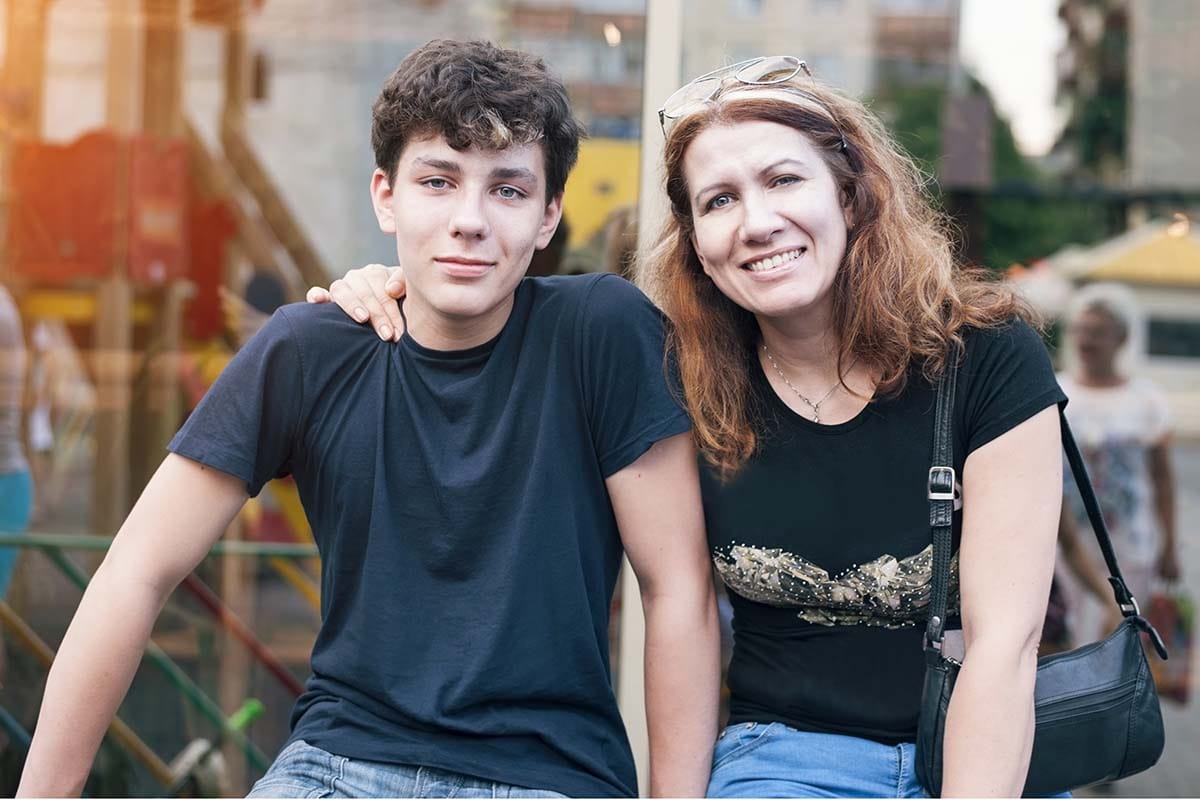
Parents never want to learn that their child is using drugs. That desire to not know a painful truth is often powerful enough that we overlook certain red flags. It is relatively easy for the mind to make adjustments in what it thinks it sees, to rationalize behaviors and signs as evidence of something else, or nothing at all. This is normal. Once you realize that your child is using drugs, don’t be hard on yourself for not knowing sooner. But don’t wait before getting help and answers. In Pennsylvania, detox center programs are available at Naaman (Naaman). These programs can help your child stop using drugs.
Reach out today to talk to someone who can calmly and reassuringly walk you through steps you can take to help your child. You do not have to figure this out alone. Call us at 888.541.9239 or fill out our online form today.
What to Do When You Find Out Your Child Is Using Drugs
As you come to terms with the information that your child is using drugs, we offer some tips for parents of children who use drugs below.
Rebuild Your Relationship
Actively work on making your relationship stronger. The bonds you have built with your child through life may be weakened due to their addiction, namely their secretiveness and deceit. These characteristics of addicts arise directly from their desire to protect themselves from consequences and ensure continued use. How do you chip away at that lack of trust and rebuild the connection?
- Assertive communication
- Non-judgmental communication
- Ask questions and listen
Don’t Enable Their Drug or Alcohol Use
Stop enabling their drug-using behavior. You may at first think, “I would never do that!” but often, the most innocuous-seeming behaviors make it easy for them to keep using. Examples of enabling include:
- Making excuses for their behaviors rather than addressing them directly
- Covering for them when they miss obligations
- Hiding their behaviors from others, even your spouse
- Bailing them out financially without question
- Picking up the slack when they drop the ball
- Ignoring unacceptable behaviors and deciding that “it’s just how they are”
Make Your Expectations Clear
Set and adhere to clear expectations. Clearly communicating to your child what the boundaries are around acceptable behavior lets them know where they stand. They may not like it, but at least they’ll understand what to expect. Deep down, they also know you are doing it out of love. Expectations are not the same as threats. One great idea is to try to create the list with them and get their buy-in. Some great boundaries to set are as follows:
- You may not be high/intoxicated in our home
- I won’t give you money
- I won’t lie for you
- Don’t bring drugs or paraphernalia into the house
Don’t Be Afraid to Let Them Suffer the Consequences of Their Actions
Allow natural consequences to occur. This goes hand in hand with boundary-setting. Only by experiencing the consequences of their actions does anyone learn.
- If your child skips school, don’t call to make an excuse.
- If your child gets fired for not showing up at work, don’t “fix it.” Don’t try to find them another job.
- If your child behaves badly at a holiday dinner, let it unfold. Don’t try to cover up or make excuses. You can’t mend those relationships; only your child can do that once in recovery.
- If your child is picked up for a DUI, allow the legal system to do its job. Better the state takes the license away than the accident that is waiting to happen.
Support Their Recovery as Much as You Can
Actively and positively engage in the process of change. Your support, love, and positive involvement have an enormous impact on your child before, during, and after addiction treatment. Whatever stage you are in, remember to be there in constructive (not enabling) ways, such as:
- Listen when they are ready to talk.
- Participate in family therapy with them as part of a rehab treatment program or separately.
- Drop them off and pick them up from any activities that focus on recoveries, such as outpatient rehab or 12-step meetings.
- Encourage honest communication by communicating honestly.
Learn More About Medical Detox at Naaman
After the first step in recovery, which is deciding to stop using drugs, the next step is detox. This stage is brief but unpleasant and best done in a residential, medically supervised detox program, which will allow your child to start recovery from a position of strength and safety.
At Naaman, we treat people of all ages, including adolescents, to cope with addiction. To learn more about how we can help your child, reach out today. Call 888.541.9239 or use our online form. Addiction is a family disease, and we will include your family to rebuild hope as your child strives for sobriety, wellbeing, and the awaiting future.
